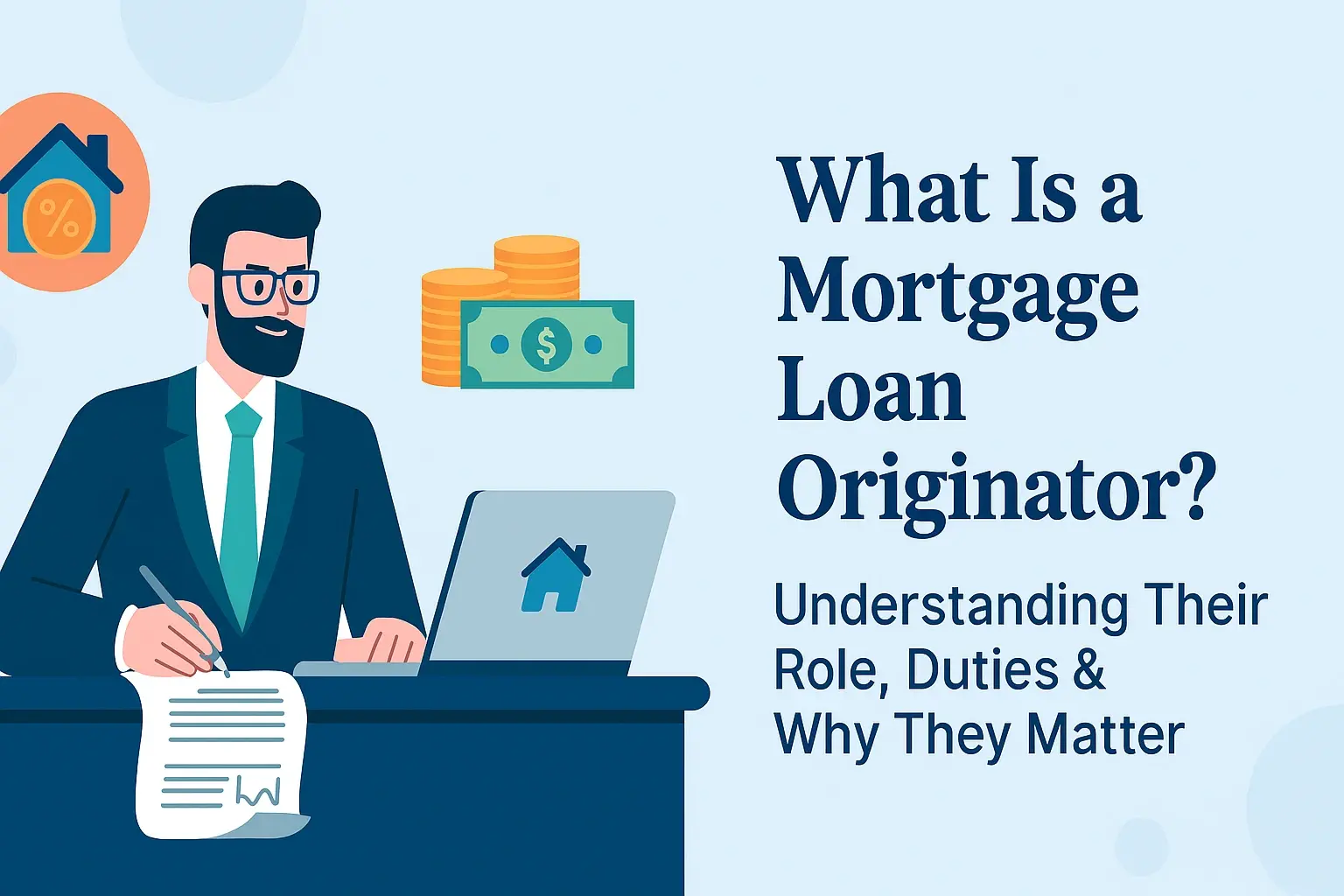-
Posted on: 23 Aug 2024

-
Buying a home is a significant financial decision, and understanding how much you can qualify for on a home loan is a crucial first step. It's exciting to browse listings and dream of your future home, but before you fall in love with a property, it's essential to get a clear picture of your borrowing power. This comprehensive guide will walk you through the factors lenders consider when determining your loan eligibility, helping you estimate your potential borrowing capacity and navigate the home buying process with confidence.
Key Factors Affecting Your Home Loan Qualification
Several factors influence the amount you can borrow for a home. Lenders assess your financial health to determine the risk involved in lending you money. Here's a breakdown of the most important aspects:
1. Income: The Foundation of Affordability
Your income is a primary factor lenders consider. They need to see a stable and reliable source of funds to ensure you can consistently make mortgage payments. Lenders typically look at your gross monthly income (before taxes and deductions). They will request documentation like:
- Pay stubs: Providing recent pay stubs (usually the last two or three months) is standard.
- W-2 forms: Your W-2s from the past two years offer a historical overview of your income.
- Tax returns: Self-employed individuals will need to provide tax returns (typically the last two years) to verify their income.
- Other income sources: If you have income from sources like alimony, child support, rental properties, or investments, be prepared to provide documentation. These sources may need to meet specific stability requirements.
Lenders will analyze your income history to ensure stability and consistency. Significant fluctuations in income can raise red flags.
2. Debt-to-Income Ratio (DTI): Balancing Income and Obligations
Your Debt-to-Income Ratio (DTI) is a critical metric lenders use to assess your ability to manage debt. It's calculated by dividing your total monthly debt payments (including your potential mortgage payment) by your gross monthly income. Lenders generally prefer a lower DTI, indicating that you have more income available to cover your mortgage and other expenses.
Formula: DTI = (Total Monthly Debt Payments / Gross Monthly Income) x 100
What constitutes "good" DTI?
- Below 36%: Generally considered excellent. You have a comfortable cushion to handle your existing debt and a new mortgage.
- 36% to 43%: Acceptable, but you may have less flexibility in your budget.
- 43% to 50%: May be approved, but lenders might require compensating factors like a larger down payment or excellent credit.
- Above 50%: Likely to be declined. You may be considered a higher risk borrower.
What debts are included in DTI?
- Credit card payments
- Student loan payments
- Auto loan payments
- Personal loan payments
- Child support or alimony payments
- Minimum payments on lines of credit
- Your estimated new mortgage payment (including principal, interest, taxes, and insurance - PITI)
How to improve your DTI:
- Pay down existing debt, especially high-interest credit card balances.
- Avoid taking on new debt before applying for a mortgage.
- If possible, increase your income through a raise, promotion, or side hustle.
3. Credit Score: A Reflection of Your Financial Responsibility
Your credit score is a numerical representation of your creditworthiness. It reflects your history of borrowing and repaying debt. A higher credit score generally indicates a lower risk to lenders, leading to better interest rates and loan terms.
Credit score ranges and their implications:
- 800+: Exceptional. You'll likely qualify for the best interest rates and loan terms.
- 740-799: Very Good. You're considered a low-risk borrower.
- 670-739: Good. You'll likely qualify for a loan, but your interest rate might be slightly higher.
- 580-669: Fair. You may still qualify for a loan, but expect higher interest rates and potentially stricter loan terms. You may need to consider FHA loans or other government-backed programs.
- Below 580: Poor. It may be challenging to get approved for a conventional mortgage. Focus on improving your credit score before applying. Consider options like FHA loans, which have more lenient credit requirements.
Factors affecting your credit score:
- Payment history (the most important factor)
- Amounts owed
- Length of credit history
- Credit mix
- New credit
How to improve your credit score:
- Pay your bills on time, every time.
- Keep your credit card balances low (ideally below 30% of your credit limit).
- Avoid opening too many new credit accounts at once.
- Check your credit report regularly for errors and dispute any inaccuracies. You can get a free copy of your credit report from each of the three major credit bureaus (Equifax, Experian, and TransUnion) annually at AnnualCreditReport.com.
4. Down Payment: Your Initial Investment
Your down payment is the initial amount of money you contribute towards the purchase of the home. It's the difference between the purchase price and the loan amount. A larger down payment typically reduces the lender's risk, potentially leading to better interest rates and loan terms.
Down payment percentages and their implications:
- Less than 20%: You'll likely need to pay Private Mortgage Insurance (PMI). PMI protects the lender if you default on the loan.
- 20% or more: You typically won't need to pay PMI, and you may qualify for a lower interest rate.
Down payment sources:
- Savings
- Gifts from family members (must be properly documented)
- Proceeds from the sale of another property
- Down payment assistance programs (check your local government and non-profit organizations)
5. Assets: Demonstrating Financial Stability
Lenders also consider your assets, which demonstrate your financial stability and ability to handle unexpected expenses. Assets can include:
- Checking and savings accounts
- Investment accounts (stocks, bonds, mutual funds)
- Retirement accounts (401(k), IRA)
- Other valuable assets (e.g., real estate, vehicles)
Having substantial assets can strengthen your loan application and increase your chances of approval.
6. Loan Type: Different Options, Different Requirements
The type of loan you choose can also influence the amount you qualify for. Different loan programs have varying requirements regarding credit score, down payment, and DTI.
- Conventional Loans: Typically require a good credit score and a down payment of at least 3%. They often have stricter DTI requirements.
- FHA Loans: Backed by the Federal Housing Administration, FHA loans have more lenient credit requirements and allow for lower down payments (as low as 3.5%). They require mortgage insurance (both upfront and annual).
- VA Loans: Available to eligible veterans and active-duty military personnel, VA loans often don't require a down payment or mortgage insurance. They also typically offer competitive interest rates.
- USDA Loans: Offered by the U.S. Department of Agriculture, USDA loans are designed for rural and suburban homebuyers. They typically don't require a down payment and offer competitive interest rates. Income restrictions often apply.
7. Interest Rates: A Significant Factor in Affordability
Interest rates play a crucial role in determining your monthly mortgage payment and the overall cost of your loan. Even a small change in the interest rate can significantly impact the amount you can afford.
Factors affecting interest rates:
- Credit score: Higher credit scores typically result in lower interest rates.
- Loan type: Different loan programs offer varying interest rates.
- Economic conditions: Interest rates are influenced by broader economic factors, such as inflation and the Federal Reserve's monetary policy.
- Down payment: A larger down payment may lead to a lower interest rate.
- Loan term: Shorter loan terms (e.g., 15 years) typically have lower interest rates than longer loan terms (e.g., 30 years).
Getting Pre-Approved: A Crucial Step
Getting pre-approved for a mortgage is highly recommended before you start seriously searching for a home. Pre-approval involves submitting your financial information to a lender, who will then assess your creditworthiness and provide you with a letter stating the maximum loan amount you're likely to be approved for. This letter gives you a significant advantage in the home buying process.
Benefits of pre-approval:
- Determines your budget: You'll know exactly how much you can afford, preventing you from wasting time looking at properties outside your price range.
- Strengthens your offer: Sellers are more likely to take your offer seriously if you're pre-approved, as it demonstrates that you're a qualified buyer.
- Speeds up the closing process: Having your financing in place can help expedite the closing process.
- Negotiating power: Knowing your budget allows you to negotiate with confidence.
Using Mortgage Calculators: An Estimation Tool
Online mortgage calculators are valuable tools for estimating your potential mortgage payment and the amount you can afford. These calculators typically ask for information like your income, debts, down payment, and desired loan amount. While these calculators provide a helpful estimate, remember that they are not a substitute for pre-approval from a lender.
Things to consider when using mortgage calculators:
- Property taxes: Include an estimate of your property taxes, which can vary depending on your location.
- Homeowners insurance: Factor in the cost of homeowners insurance.
- PMI (if applicable): If you're putting down less than 20%, include an estimate of your PMI payment.
- HOA fees (if applicable): If you're buying a property in a homeowners association, include the monthly HOA fees.
Working with a Mortgage Professional
Navigating the home loan process can be complex, and working with a qualified mortgage professional can be incredibly beneficial. A mortgage broker or loan officer can guide you through the various loan options, help you understand your credit report, and provide personalized advice based on your financial situation.
Benefits of working with a mortgage professional:
- Expert guidance: They can answer your questions and address your concerns throughout the process.
- Access to multiple lenders: Mortgage brokers can compare loan offers from multiple lenders to find the best rates and terms for you.
- Streamlined process: They can help you gather the necessary documentation and navigate the loan application process efficiently.
- Negotiation assistance: They can help you negotiate with the lender to get the best possible loan terms.









